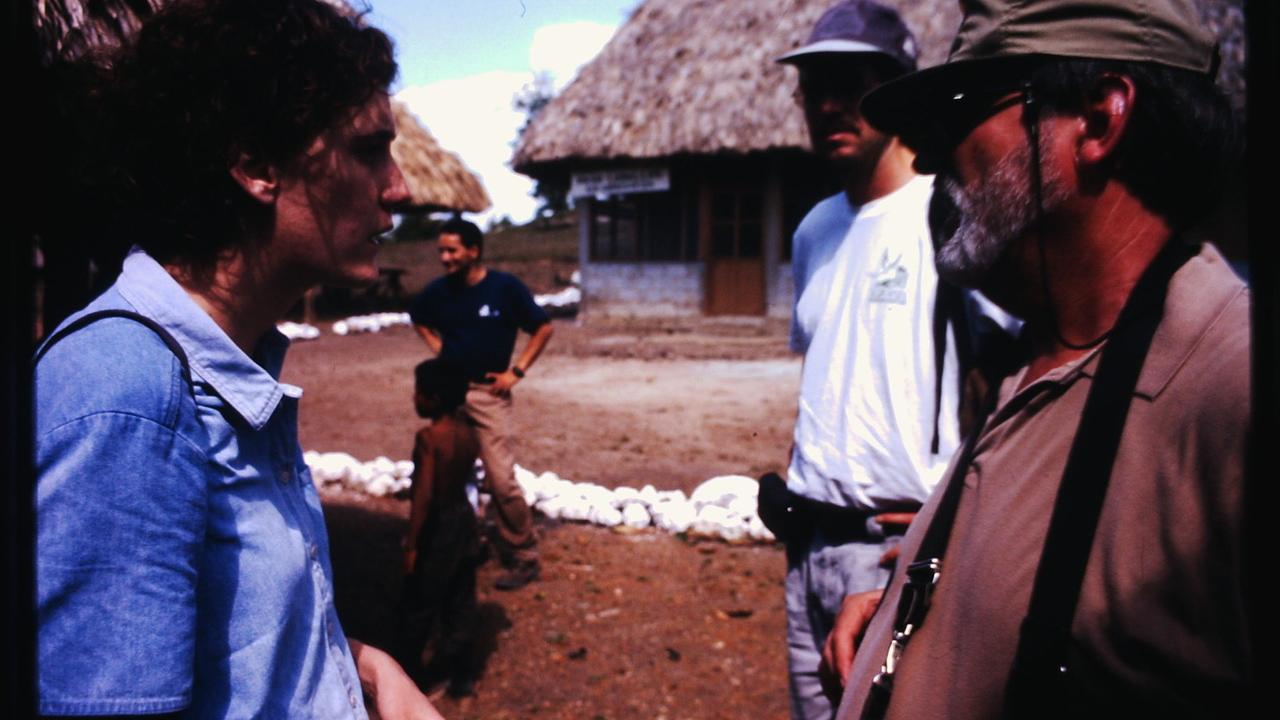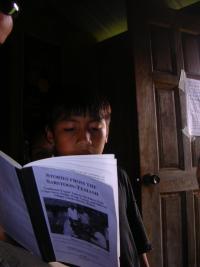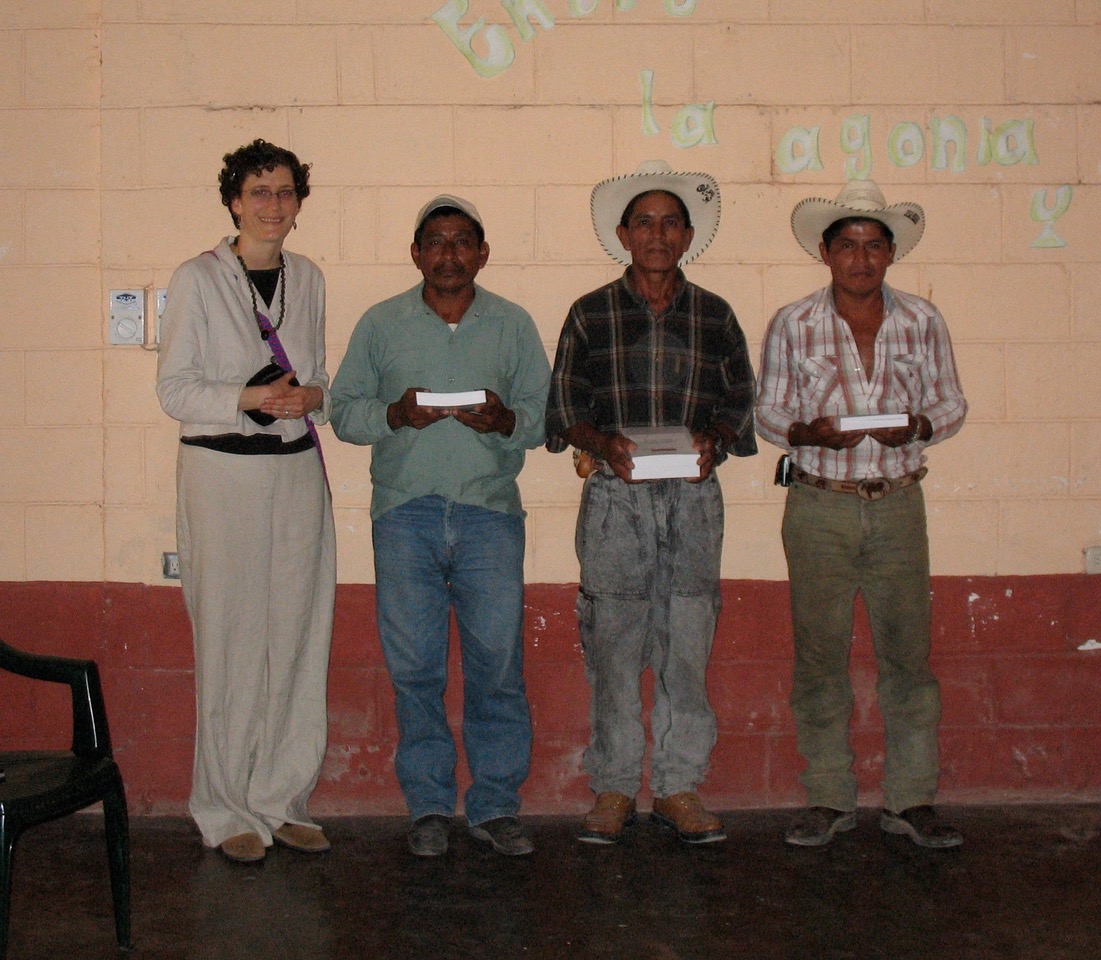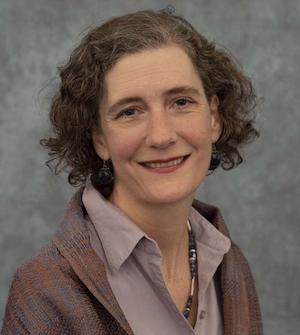
Anthropological Ally
Liza Grandia wants to encourage students to be public scholars
Liza Grandia, associate professor in the Department of Native American Studies and internationally acclaimed public scholar, was barely drinking age when she stopped the World Bank and an international oil company from building a pipeline through the rural regions of Guatemala.
“It was an addictive thing,” Grandia said. “Once you know you can do something like that, at age 21, you can’t resist, right?”
The lesson Grandia learned then — that one is never too young to become engaged in public scholarship — is something that she emphasizes to her students at UC Davis.
“In my teaching I try to get students to work on real things. I want them to know that they, as students, can make a difference in the world,” said Grandia, who received a 2022 Teaching Award from the College of Letters and Science. “I want them to know they don’t need to wait. They can do it now.”
Making the Most Out of Every College Assignment

Grandia, who was born in a trailer in Alabama, was in her fourth year as an undergraduate student at Yale University when the life-changing project occurred. She had just returned from a year of living in Guatemala, where she taught environmental education to school children in a remote village in the Maya Biosphere Reserve. On trips back to town, she befriended a chain-smoking anthropologist with a bad ulcer, who taught her about ethnographic fieldwork over coffee.
“I learned through him, his eyes, to really understand the everyday. We’d talk about what was happening in the village (where I was living), so I kind of learned anthropology inductively,” she said.
The experience reinvigorated her studies and she returned to Yale determined to make the most out of every assignment. For a senior paper, Grandia decided to investigate an oil pipeline project that she heard about from her friends in Guatemala. After a trip to the library, she found the phone number for the oil company’s front office in Louisiana and decided to call.
“This secretary answered and, I’m from Alabama so when someone talks to me in a southern accent, I just slip back into mine,” she said, a southern drawl oozing out as she recounted the tale. “And I just said, ‘I’m a student at Yale and I’ve just gotten back from Guatemala. I’m just really interested in energy development for those countries, and I hear that y’all are building a pipeline.”
Next thing Grandia knew, she had a stack of papers three-inches thick at her doorstep. Grandia discovered that the World Bank had violated its own policies by not requiring an environmental impact assessment. She sent copies of the documents to the contacts in Guatemala and the project was halted. Although it was eventually built, it was rerouted to a less invasive location, redesigned to be more environmentally stable, and the company had to allocate $250,000 annually to preservation projects in Guatemalan forests.
Driven To Be an Ally
With a Fulbright grad after college, she started family planning programs for half a million women in the region of Guatemala where she lived as a college student, which had the highest fertility rate in Latin America at the time.
Since those early academic years, Grandia has continued her allyship, leveraging her position as a scholar to help the people of Guatemala and Belize. In graduate school, beyond her primary research on land grabbing (which stopped another major World Bank project), she carried out a side project at the invitation of a Q’eqchi’ nonprofit to document traditional ecological knowledge and territorial land use. Her efforts helped Maya communities win co-management of a national park and a constitutional land case that restored Maya governance to southern Belize.
“Most people say think globally and act locally, but I’m actually the opposite. I think locally and act globally. That’s been my special sauce, if you will,” she said. “I think about what I know about local conditions and how global systems affect that and then throw my academic weight around to help bring about global change.”
Cancer Leads to Public Scholarship
Grandia said she was ambivalent about staying in academia; but a cancer diagnosis during the second semester on tenure track changed things.
“That forced me to reinvent myself. The type of village work I loved and did so well, I couldn’t do anymore,” she said. “So, cancer kind of pushed me into advocacy; and doing this public scholarship has enabled me to focus on the global bullies and make change in other ways.”
Despite battling two bouts of cancer, raising a daughter on her own (which she says is her proudest accomplishment) and battling long COVID-19, Grandia has had a remarkable career in public scholarship.
For nearly three decades she has worked with the Q’eqchi people to help them document the land grabs induced by another World Bank project and halt its expansion. Sharing her work through both a documentary film and illustrated booklet in colloquial Spanish and Q’eqchi’ inspired 162 villages of Q'eqchi' people to join an Indigenous peasant federation to defend and steward their remaining lands with improved agroecological practices. She also founded the Q’eqchi’ Scholars Network, through which she mentors younger scholars to put their research into service of Indigenous and environmental justice movements.
She has authored two books: Tz'aptz'ooqeb' (published in Spanish), which explores the recurring dispossession of the Q'eqchi' people, and Enclosed: Conservation, Cattle and Commerce among the Q’eqchi’ Maya Lowlanders, which examines why this Indigenous group has been driven into conflict because of projects financed by international development banks. She is working on a third book about the resistance of Indigenous peoples in Mesoamerica to genetically-modified corn. For her extraordinary community-engaged work, Grandia was awarded the International Association for Research on Service-Learning and Community Engagement in January 2023.

“The sharing of my research, with my book and the films, has been a really rewarding experience because in the past a genocidal state has denied those people that history in their public education,” she said. “And it’s not simply writing in translation, but thinking in translation. That’s the beauty of public scholarship. It forces us to work at a much higher academic level to ask if my research is uncovering something not already apparent to my research collaborators.”
Changing the Mindset of Scholarship
Accolades aside, Grandia’s aspirations are to change the way that scholarship is conducted with Indigenous peoples, especially in Latin and Central America. Historically, anthropologists have not reciprocated their research or put it in service of social movements, thereby creating the stigma of being an “extractive or parasitic” discipline, she said.
Grandia wants future generations of anthropologists to instead pursue scholarship in a way that engages the public, where the scholar opens themselves up to be critiqued by and listen to the people with whom they are working. It is work that is supported by Public Scholarship and Engagement through its Public Impact Research Initiative and a Community Engaged Learning Faculty Fellowship. The funds support faculty who incorporate community-focused problems and questions into research and teaching.
“The ultimate goal of what I would like to do is to return more scholarship written about Q’eqchi’ people back to communities for their own analysis,” she said. “I’ve always seen my role as helping connect people, bringing the resources I could muster and then allowing Guatemalans to lead the efforts themselves. When you engage in this way, I think it enriches the scholarship.”

Read Liza Grandia's Reflection
Liza Grandia shares how her public scholarship efforts are inspiring the people of Guatemala to fight for their land and future.
About the Public Scholar

Liza Grandia
Associate Professor
Native American Studies
